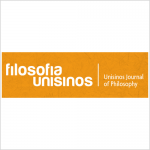Logic, language and reality
Vol 7, No 2 (2006) • Filosofia Unisinos - Unisinos Journal of Philosophy
Autor: Rodolfo Gaeta
Resumo:
While John Stuart Mill assimilated the logical principles into empirical laws, the logical empiricists held that logical truths were analytical, deprived of empirical content and true by convention. In “Two Dogmas of Empiricism” Quine advocated a pragmatic reading of logical truths and argued that the only difference between them and the hypotheses of scientific theories was that scientists are more reluctant to change the former in case of a conflict with experience. But in later writings he admitted the possibility that logical truths reflect structural traits of the world and become self-evident. In this paper it is argued that both the logical empiricists’ and the Quine’s earlier views about logical truths are misguided. Consequently, it is claimed that logical truths have an ontological scope and are necessary in order to preserve the intelligibility of our discourse.
ISSN: ISSN: 1984-8234
Texto Completo: http://revistas.unisinos.br/index.php/filosofia/article/view/6096
Palavras-Chave: Empiricism, analytic sentences.,logical truth

Filosofia Unisinos - Unisinos Journal of Philosophy
The journal Filosofia Unisinos - Unisinos Journal of Philosophy is published once every four months by Universidade do Vale do Rio dos Sinos.
Articles must be original, unpublished, and not under consideration for publication anywhere else and can be written in Portuguese, English or Spanish
Filosofia Unisinos - Unisinos Journal of Philosophy prints articles, translations and critical book reviews. It also reprints papers that are considered fundamental to the area when authorized written permission is given by the original publisher.
